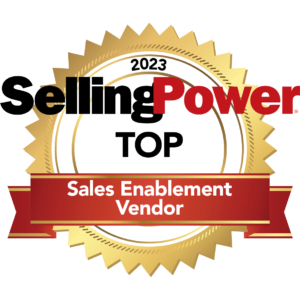An Unusual Way to Compensate Sales Reps
How successful would your sales organization become if you stopped altering your compensation plan year after year and instead created a single, unchanging, equity-based compensation structure for commissioned reps?
For Heartland Payment Systems, this approach propelled the company from a garage start-up in 1997 to a Fortune 1000 company that today processes more than 11 million daily transactions totaling $80 billion per year. It still uses the same compensation structure it created back in 1997 – and it is urging other organizations to consider a similar approach in an initiative Heartland CEO Bob Carr calls the Sales Professional Bill of Rights.
Heartland’s compensation plan for its 1,000 commissioned sales reps is simple: for every customer a rep brings into Heartland, he or she earns both a residual and equity piece of the revenue for the life of that customer relationship. Even if the rep leaves the company, Heartland continues to pay that equity as long as the customer remains with Heartland. Or if the departing rep prefers, Heartland will buy him or her out with a one-time payout.
“It’s a massive commitment to pay out a substantial portion of our revenue to the rep who brought in the business,” admits Carr, “but the question is, what does a company owe to the people who built it? If commissioned salespeople invest their own time and money to bring a client to Heartland, we feel they should be rewarded for that for a long time.”
This approach to sales compensation – a consistent, unchanging model and the sharing of recurring revenue with the reps who bring customers in – are two of the 10 tenets of Carr’s Sales Professional Bill of Rights (SPBOR). Carr launched the SPBOR in 2012 to advocate for the rights of sales professionals. Some other tenets include “the right to earn monthly residual income that builds uncapped wealth” and “the right to a proven sales model that encourages and allows successful sales professionals freedom to establish their work schedule in conjunction with the company’s goals.”
“Each of the tenets has always been part of the fabric of Heartland,” says Tony Capucille, executive director of sales. “We thought it was time for [SPBOR] to be part of the broader sales conversation and get the awareness out there so sales professionals look for a higher standard.”
Carr admits that some of the SPBOR tenets are tough for companies to swallow – particularly lifetime equity – as there are significant costs associated with them. It took Carr six years to realize his first profits under this plan, but it’s been all growth since then, and he credits his compensation plan with much of that success. Another benefit: low turnover. For salespeople who make it past the first 18 months, Heartland boasts a 92 percent retention rate.
“I have been here for eleven years, and the compensation model I came in with is the same one that’s here today,” says Capucille. “There’s been no downsizing. There’s a lot of security in that. Bob Carr built this company by making the right long-term business decisions, even if they were difficult in the short term.”
Get our eNewsletter
Get the latest sales leadership insight, strategies, and best practices delivered weekly to your inbox.
Sign up NOW →